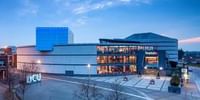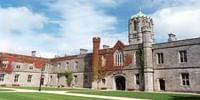How did the universe evolve? What are the basic building blocks of matter? These are the fundamental questions concerning physics, which is central to current and future science and technology.Physics is used to tackle problems as diverse as the development of new energy sources, safer medical diagnostics, high-temperature superconductors and ever smaller and faster devices for electronics and telecommunications.As a physics student, you will embark on a dynamic and exciting course of study that combines intellectual fascination with practical application to a wide range of human endeavours, including biological sciences, engineering, earth sciences, philosophy and medicine.The attributes needed by a good physicist include spatial and conceptual vision, mathematical fluency, curiosity, imagination and capacity for hard work.Admission to the BSc Physics course is via the Physics and Astrophysics (CK408) entry stream. The Year 1 curriculum provides a broad foundation in physics and mathematical subjects, allowing students to pursue several possible degree courses.The practical component of the course will give you the opportunity to test the theory learned in lectures. Your experimental skills and insight will be developed during the practicals, which include preset and open experiments involving the use of research equipment, electronics and interfacing, error analysis and interpretation, report writing and data dissemination (seminars and poster presentations).Exposure to all aspects of experimental methodologies will give you the ability and confidence to tackle the Year 4 research project. This practical training will also give you a firm foundation for postgraduate research and for technical careers in industry.Modules balance theoretical and experimental approaches, and subjects include: mechanics, thermodynamics, optics, electromagnetism, astrophysics, relativity, spectroscopy, computational methods, quantum mechanics, condensed matter physics and plasma physics.
₹25.9 L/Yr
€24,500 /Yr
Important Dates
| Event | End Date |
| Application Deadline For September Intake | May 31, 2023 |
Fees & Funding
Tution & Application Fees
| Year | Year 1 | Year 2 | Year 3 | Year 4 | Year 1 | Year 2 | Year 3 | Year 4 |
| Tuition Fees | ₹2432710 | ₹2432710 | ₹2432710 | ₹2432710 | ₹2432710 | ₹2432710 | ₹2432710 | ₹2432710 |
| Other Fees | ₹158655 | ₹158655 | ₹158655 | ₹158655 | ₹158655 | ₹158655 | ₹158655 | ₹158655 |
| Total Fees | ₹2591365 | ₹2591365 | ₹2591365 | ₹2591365 | ₹2591365 | ₹2591365 | ₹2591365 | ₹2591365 |
Ask your question
Similar Colleges You Might Be Interested In
- Similar Colleges
No Ratings Found!!
Follow
No Ratings Found!!
Follow
No Ratings Found!!
Follow
No Ratings Found!!
Follow
No Ratings Found!!
Follow











